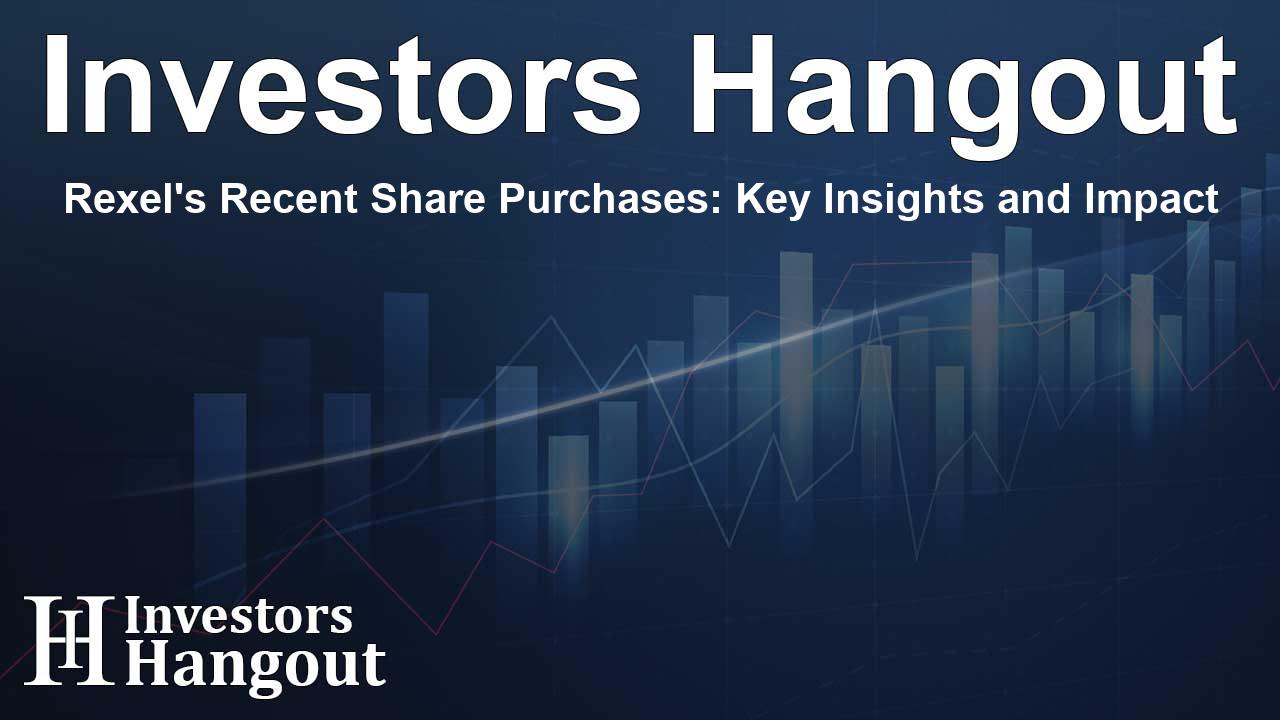Rexel's Recent Share Purchases: Key Insights and Impact

An Overview of Rexel's Share Buyback Activity
Rexel has been actively managing its share buyback program, a strategy endorsed by shareholders that allows the company to repurchase its shares. This practice not only reflects confidence in the company's growth but is also a way to enhance shareholder value.
Details of Share Repurchases
From August 18 to August 22, Rexel executed a series of share repurchases, indicating a robust commitment to its shareholder return strategy. The transactions were carried out in accordance with the regulations governing financial markets. During this period, the company bought back a total of 171,490 shares at a daily average purchase price of approximately 27.68.
Transaction Breakdown
On several days within this period, significant purchases were made. For instance, on August 18, 2025, Rexel repurchased 500 shares at 27.56, indicating a strong market presence. Subsequent days saw additional purchases that further demonstrated Rexel's proactive approach to its share buyback initiative.
Why Share Buybacks Matter
Share buybacks are often viewed favorably by investors as they can signal a company's financial health and optimism about future prospects. For Rexel, this tactic is not just about increasing earnings per share but also about returning cash to shareholders, which is particularly important in a competitive market.
Market Reactions
The market response to such buybacks tends to be positive, as they can lead to an enhancement of the existing shares' value. Investors often perceive these actions as signals of a company's strong performance and commitment to maximizing shareholder equity.
Looking Ahead: Rexel's Future Plans
As Rexel moves forward, the company is likely to continue its share repurchase program as part of its broader strategy to strengthen its market position. By consistently engaging in share buybacks, Rexel aims to create value for its shareholders, adapt to market conditions, and foster ongoing growth and profitability.
Market Context
In the current economic climate, where companies are tested by fluctuating market conditions, Rexel’s commitment to its buyback program reflects its strategic approach to maintaining investments in company performance and shareholder value. Observers will be keenly watching how these initiatives influence Rexel's financial landscape and stock performance.
Frequently Asked Questions
What was the total volume of shares purchased by Rexel?
During the buyback period from August 18 to August 22, 2025, Rexel purchased a total of 171,490 shares.
What is the average purchase price of the shares bought back?
The daily weighted average purchase price of shares during this period was approximately 27.68.
What is the purpose of Rexel's share buyback?
The share buyback program is intended to enhance shareholder value and reflect confidence in Rexel's growth prospects.
How do share buybacks affect investors?
Share buybacks can increase the value of existing shares and signal a company's financial health to investors.
Will Rexel continue with its share repurchase strategy?
Given the current economic conditions and strategic goals, Rexel is likely to pursue further share repurchases to strengthen its market position.
About The Author
Contact Dominic Sanders privately here. Or send an email with ATTN: Dominic Sanders as the subject to contact@investorshangout.com.
About Investors Hangout
Investors Hangout is a leading online stock forum for financial discussion and learning, offering a wide range of free tools and resources. It draws in traders of all levels, who exchange market knowledge, investigate trading tactics, and keep an eye on industry developments in real time. Featuring financial articles, stock message boards, quotes, charts, company profiles, and live news updates. Through cooperative learning and a wealth of informational resources, it helps users from novices creating their first portfolios to experts honing their techniques. Join Investors Hangout today: https://investorshangout.com/
The content of this article is based on factual, publicly available information and does not represent legal, financial, or investment advice. Investors Hangout does not offer financial advice, and the author is not a licensed financial advisor. Consult a qualified advisor before making any financial or investment decisions based on this article. This article should not be considered advice to purchase, sell, or hold any securities or other investments. If any of the material provided here is inaccurate, please contact us for corrections.
